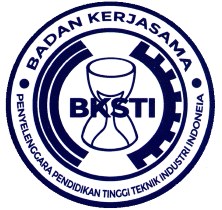Information Technology-Based Financial Administration Training for Waste Bank Management
DOI:
https://doi.org/10.12928/spekta.v4i1.7270Keywords:
Financial administration, Microsoft Excel, Waste BankAbstract
Background: Currently there are many movements to support the government related to improving people's welfare by processing waste. Since the Covid-19 pandemic, the price of used waste has decreased. This community service is carried out at the “Gemi Nastiti” Waste Bank. The recap of activities and finances carried out at the “Gemi Nastiti” Waste Bank is done manually, this is because members do not yet have the knowledge and ability to do administration. Therefore, this community service aims to provide assistance in preparing technology-based administration.
Contribution: Providing knowledge, understanding, and financial administration skills to Waste Bank Managers "Gemi Nastiti" through the use of Microsoft excel and can input and apply Microsoft excel in processing their waste bank financial administration work.
Method: Providing material theoretically microsoft excel, demonstrating how to use microsoft excel, training and assistance in inputting financial transaction data, case solving from the field.
Results: The knowledge of the waste bank management "Gemi Nastiti" about Microsoft excell is approximately 10% at the time of the pre-test, while the work done is administration which has been done manually. For this reason, in the activities in the community that are currently carried out, namely financial administration training using Microsoft Excel, after the completion of the training, the post-test value obtained is on average 77%.
Conclusion: The administrators of the "Gemi Nastiti" waste bank can use Microsoft Excel in recording financial administration as evidence and information from the running of waste bank activities
References
Talley, LD 2013. Closure of the global overturning circulation through the Indian, Pacific, and Southern Oceans: Schematics and transports. Oceanography26(1):80– 97,https://doi.org/10.5670/oceanog.2013.07.
Riswan, HR Sunoko, and A. Hadiyarto, "Management of Household Waste In Daha Selatan District,"Journal of Environmental Science, vol. 9, no. 1, pp. 31-38, Feb. 2012. https://doi.org/10.14710/jil.9.1.31-38.
Aryenti, 2011. Increasing Community Participation Through Saving Movements in Waste Banks in the Babakan Village, Surabaya, Kiaracondong, Bandung. Residential Research and Development Center. Bandung.
Asmiyati, Agustaman, 2012, Waste Bank. Indonesian Waste Bank Profile Book. Davis, Keith and John W. Newstrom. 2013. Behavior in Organizations. Jakarta: Erlangga.
Daryanto et al, 2011. Business Partnership Strategy in the Context of Increasing the Competitiveness of Red Cabbage Agribusiness in Central Java.
Eko Saputro, Y., Kismartini, & Syafrudin. (2015). Community-based waste management through waste banks. Indonesian Journal of Conservation, 04(1), 83–94.
Yuda, A. (2021, March). Definition of Administrative Activities According to Experts, Characteristics, Types, Elements, Functions, Objectives, and Examples. Bola.Com. https://www.bola.com/ragam/read/4520011/pengertian-activity-administration-menurut-para- ahli-ciri-tipe-element-function-purpose-dan-examples.
Nugroho, RA (2019, April 14). Administrative Functions, These Characteristics and Purpose. Hot.Liputan6.Com. https://hot.liputan6.com/read/3941304/fungsi-administration-ini-ciri-ciri- dan-untungnya.
Hamza, A. (2017). Managing General Book Administration With Ms Excel(Part Ii). Focal: Secretarial And Management Journal, 4(1), 1–10.
Hellen Last Fitriani, 2017, Management Assistance for Waste Bank Management with a Gender Perspective, Volume 5 No 1 of 2020 J. Dynamics of ISSN 2503-1031.
Rizaldi, R. (2019). Training In Office Administrative Data Processing Using The Microsoft Excel Application At Pinanggripan Village Hall, Air Batu District, Asahan District. Jurdimas (Journal of Community Service) Royal, 2(2), 107–114. https://doi.org/10.33330/jurdimas.v2i2.369.
G. Shollakhudin.” Implementation of Financial Statements of Nonprofit Oriented Entities Based on ISAK 35 (Case Study on Dhuafa Care Youth Organizations in Gresik,” unpublished.
Ni Made Retriabirani. 2016. Community Participation in the Logit Model Waste Bank Program. Journal of Applied Qualitative Economics Vol 9 No 1 Feb 2016 ISSN: 2301-8968.
Novianty, M. (2013). The Impact of the Waste Bank Program on Socio-Economic Society in Binjai Village, Medan Denai District, Medan City. Welfare State, 1–16.
Rahardjo Adisasmita, Rural Development: Participatory Approach, Typology, Basic Concepts of Growth Center Villages, (Yogyakarta: Graha Ilmu, 2013), pp. 79-80.
Tirawati, S., Utami WN, Findriastuti, R., 2013, Handbook of the Waste Bank System and 10 Success Stories, Unilever Indonesia Foundation.
Wahyuningsih, Iis, 2018. Assistance for the waste bank program in Prawirodirjan, Yogyakarta, Vol. 2, No. 3, December 2018, Pg. 421-424.
Yudhistira, N. et al., 2017. Increasing the Knowledge and Economy of PKK Women in Bulukulon Village in Waste Management as a Waste Bank. Penamanas Adi Buana, 02, pp. 27– 32.
Yusa Eko Saputro, et al,. 2015. Community-based waste management through waste banks Indonesian Journal of Conservation, Vol 1 https://journal.unnes.ac.id/nju/index.php/ijc/article/view/5162 .
Rustanto, B. 2013. Waste Bank. Accessed at 14.10 WIB/ 5 January 2021 by:http://bambang- rustanto.blogspot.com/2013/08/bank-sampah.html.
Indonesian Association of Accountants, “Statement of Financial Accounting Standards (PSAK 01) Presentation of Financial Statements".
Indonesian Institute of Accountants” ISAK 35: Presentation of Financial Statements of Non-profit Oriented Entities”. http://iaiglobal.or.id/v03/files/file_berita/DE%20ISAK%2035.pdf.

Downloads
Published
How to Cite
Issue
Section
License
Copyright (c) 2023 Prima Prihatini Supiin

This work is licensed under a Creative Commons Attribution-ShareAlike 4.0 International License.
Authors who publish with SPEKTA (Jurnal Pengabdian Kepada Masyarakat: Teknologi dan Aplikasi) agree to the following terms:
- Authors retain copyright and grant the journal the right of first publication with the work simultaneously licensed under a Creative Commons Attribution License (CC BY-SA 4.0) that allows others to share the work with an acknowledgment of the work's authorship and initial publication in this journal.
- Authors are able to enter into separate, additional contractual arrangements for the non-exclusive distribution of the journal's published version of the work (e.g., post it to an institutional repository or publish it in a book), with an acknowledgment of its initial publication in this journal.
- Authors are permitted and encouraged to post their work online (e.g., in institutional repositories or on their website) prior to and during the submission process, as it can lead to productive exchanges, as well as earlier and greater citation of published work.

This work is licensed under a Creative Commons Attribution-ShareAlike 4.0 International License.












